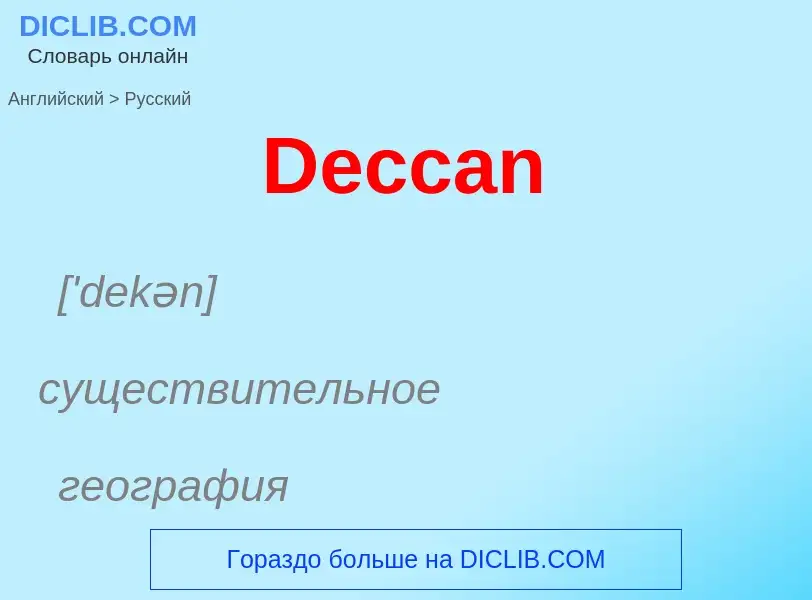Tradução e análise de palavras por inteligência artificial ChatGPT
Nesta página você pode obter uma análise detalhada de uma palavra ou frase, produzida usando a melhor tecnologia de inteligência artificial até o momento:
- como a palavra é usada
- frequência de uso
- é usado com mais frequência na fala oral ou escrita
- opções de tradução de palavras
- exemplos de uso (várias frases com tradução)
- etimologia
Deccan - tradução para Inglês
['dekənhemp]
общая лексика
кенаф
гибискус коноплёвый (Hibiscus cannabinus)
ботаника
кенаф (Hibiscus cannabinus)
общая лексика
ежовник крестьянский (Echinochloa colona)
Definição
Wikipédia

Deccan, or the Deccan, is a historical and socio-political region of the Indian Subcontinent. Roughly corresponding to the geographic boundaries of the Deccan Plateau, it is often used to refer to lands and cultures north of Tamilakam, and south of the Vindhyas. Various polities including the Bahmanis, Deccan Sultanates, and Hyderabad Deccan have used this term to refer to their country.
Historians have defined the term Deccan differently. These definitions range from a narrow one by R. G. Bhandarkar (1920), who defines Deccan as the Marathi speaking area lying between the Godavari and Krishna rivers, to a broad one by K. M. Panikkar (1969), who defines it as the entire Indian peninsula to the south of the Vindhyas. Firishta (16th century) defined Deccan as the territory inhabited by the native speakers of Kannada, Marathi, and Telugu languages. Richard M. Eaton (2005) settles on this linguistic definition for a discussion of the region's geopolitical history.
Stewart N. Gordon (1998) notes that historically, the term "Deccan" and the northern border of Deccan has varied from Tapti River in the north to Godavari River in the south, depending on the southern boundary of the northern empires. Therefore, while discussing the history of the Marathas, Gordon uses Deccan as a "relational term", defining it as "the area beyond the southern border of a northern-based kingdom" of India.


.jpg?width=200)

 (page 118 crop).jpg?width=200)




